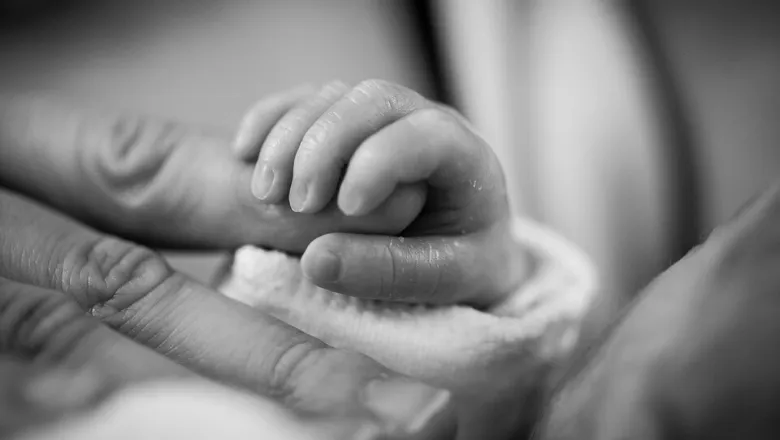Some women will have multiple pregnancy losses in-spite of best management. We are delighted to show that women who lose multiple babies, even after failed stitches will usually have successful pregnancies with an abdominal stitch. We have proven this is a lifesaver in the first randomised trial of the procedure. There are not many treatments in pregnancy that can make that claim. We are so glad to be able to help these women in their desperate situation.
Lead author Professor Andrew Shennan, King’s College London and clinical director of Tommy’s Preterm Surveillance Clinic at Guy’s and St Thomas’
05 November 2019
Abdominal stitch is more effective for women with recurrent preterm births and will save babies' lives
The results of a clinical trial, from King’s have shown that an abdominal cerclage, or stitch, is proven to save babies’ lives and reduce preterm birth in a group of high-risk women who have had a previous failed vaginal stitch.

In research recently published in The American Journal of Obstetrics and Gynecology, the abdominal stitch treatment was found to be safe and very effective in preventing both the death of the baby and very early deliveries before 32 weeks.
An abdominal cerclage is a stitch that is used to counteract an opening cervix in women who are at risk of widening and shortening of the cervix during pregnancy known as ‘cervical insufficiency’. Women who have had premature labour in a previous pregnancy, a miscarriage, surgery, or trauma to the cervix, may be at risk of cervical insufficiency.
The stitch can be done in two ways: either through the abdomen or the vagina. Mostly the vaginal route is used as it is less invasive and no major operations. However, some women still miscarry or have early deliveries even though they have had a vaginal stitch put in.
The study was a UK wide randomised controlled trial that took 10 years to complete in very high-risk women with recurrent losses and failed treatment. It was designed to see if the abdominal or vaginal stitch was more effective at preventing an early premature birth and improving a baby’s chance of survival. 111 out 139 women recruited, who conceived and were given a random treatment, were analysed.
The authors found that women who received the abdominal stitch, with prior failed cerclage, rather than the traditional vaginal stitch were more likely to have a baby that survived and are less likely to give birth before 32 weeks of pregnancy.
In pregnancy, the cervix helps keep the baby in the womb, as well as protecting the womb – and the baby – from infection. An opening cervix may lead to premature birth or miscarriage.
An abdominal stitch means that women are unable to have a vaginal birth, and will need a c-section, so it is important that the treatment is used in high-risk women who have had a previous failed vaginal stitch.
Jane Brewin Chief Executive of Tommy’s says, “Recurrent pregnancy loss devastates people’s lives; the results of this study give hope to many families. This effective treatment now needs to be available across the NHS; saving lives, reducing preterm birth and the lifetime consequences for those affected.”
This research was supported by the National Institute for Health Research (NIHR) Biomedical Research Centres at Guy's and St Thomas' NHS Foundation Trust and King's College London, NIHR Applied Research Collaboration (ARC) South London and University College London Hospitals

